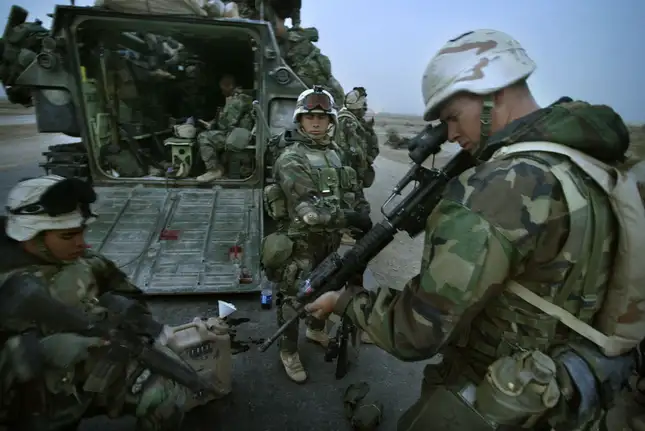The article reflects on the thirteenth anniversary of the U.S.-led invasion of Iraq, arguing that it represents one of the most significant acts of terrorism in modern history. It critiques the justifications given by leaders like Tony Blair, who claimed the invasion aimed to remove Saddam Hussein and eliminate weapons of mass destruction, highlighting that these claims were unfounded and led to immense suffering in Iraq. The piece underscores the ongoing violence and instability that followed the invasion, linking it to the rise of extremist groups like ISIS, and contrasts this with the lack of global acknowledgment or memorialization for Iraqi casualties compared to Western terror attacks. Ultimately, it condemns the long-term consequences of the invasion, suggesting that it has resulted in a humanitarian disaster and a destabilized region.
Editor’s Note: Destabilizing countries such as Iraq, Libya, and Afghanistan illustrates a foreign policy driven by strategic interests rather than genuine humanitarian concerns. These interventions have not only resulted in significant loss of life but have also led to the fragmentation of societies. The imposition of external governance structures often disregards local customs, traditions, and political realities, leading to a cultural homogenization that undermines the rich tapestry of diversity within these nations.
This is a clear duality in the policy of Western nations. Whereas in their own territories, they espouse “diversity and inclusion,” they also promote genocide in other countries [this is not to say that that the propaganda of diversity and inclusion is logical see Gender Identity vs. Biological Sex: The Debate Over Fairness in Competitive Sports, Madness: Transgender ideology has enabled people to ‘identify’ as amputees, Understanding The Great Reset and Its Attack on Humanity, Part 2: How the Different Attacks Reinforce Each Other].
Moreover, the long-term consequences of such policies extend beyond immediate military objectives. They foster environments ripe for extremism and sectarian violence, as power vacuums created by regime changes allow for the rise of radical factions. This cycle of violence perpetuates instability, making it increasingly difficult for affected nations to rebuild and recover. The cultural heritage that once flourished in these regions becomes collateral damage in a relentless pursuit of geopolitical dominance. The implications for global culture are significant. As Western powers continue to engage in interventions that prioritize their interests over the sovereignty and well-being of other nations, they inadvertently contribute to a world where diversity is diminished [See The Cost of America’s Global Agenda, The Dangers of Platforming Pro-War Narratives Without Accountability, Understanding Totalitarianism, Lies, and the Banality of Evil: Insights from Hannah Arendt, The Dystopian Reality of State-Sponsored Behavioral Control in the UK].
Read Original Article
Read Online
Click the button below if you wish to read the article on the website where it was originally published.
Read Offline
Click the button below if you wish to read the article offline.
